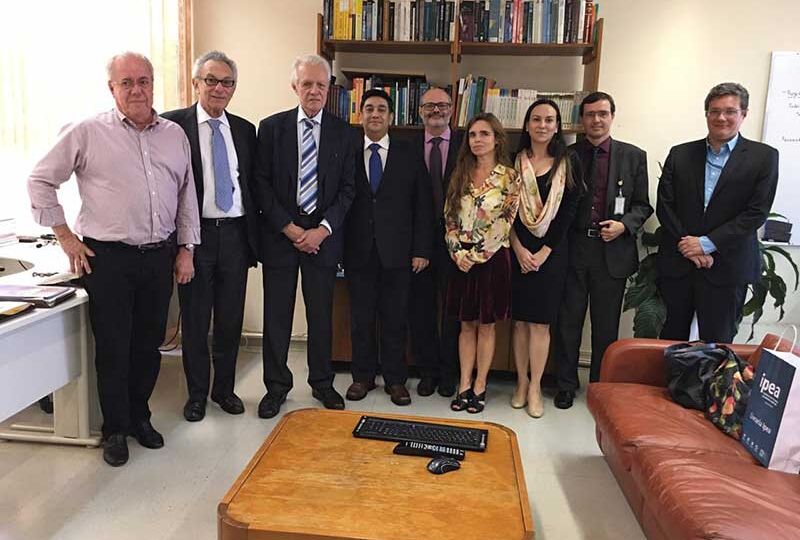
On December 13, 2018, the Institute for Applied Economic Research ( IPEA) the Secretariat for Federative Affairs of the Presidency of Brazil (SAF) and the Forum of Federations organized an event titled, “30 Years of The Brazilian Constitution: Perspectives of Brazilian Federalism” in Brasilia, Brazil.
This event marked the agreement of technical cooperation between IPEA and the Forum of Federations signed in 2015. Director of IPEA and of the Brazilian Office of the Forum of Federations, Constantino Cronemberger Mendes opened the event by highlighting the timeline of the agreements and activities among Brazil, IPEA and the Forum of Federations since 2000. Studies from this work will be released shortly in a new book edited by IPEA, SAF and the Forum of Federations.
The President and CEO of the Forum of Federations, Rupak Chattopadhyay presented the mission of the Forum of Federations related to strengthening governance in federal and decentralized countries. Mr. Chattopadhyay went on to outline different federative models throughout the world compared to Brazilian federalism.
Three authors of studies included in this future publication presented several aspects of the Brazilian federative model.
First, Fernando Rezende considered the recentralization of power and the expansion of federative conflicts and imbalances. He discussed the need and importance of a fiscal federalism reform to contribute to the stability and strengthening the Brazilian Federalism, improving the capacity to act in favor of the resumption of economic growth alongside the continuation of social progress.
Ricardo Varsano discussed a Value Added Tax (VAT) model in Brazil compared to experiences in China and India. VAT is considered the most important tax in many developing countries, usually assigned to the highest level of government. Major exceptions are Brazil and India, where VAT is assigned to states.
Finally, Marcelo Piancastelli focused on the need to increase tax revenue by municipalities in Brazil, dealing with the fiscal effort and its determinants, related specifically to the Tax on Urban Real Estate (IPTU). He started showing a global view of the determinants of tax revenue and fiscal effort, pointing out the advance of information technology, which opened up opportunities still unexplored for the modernization of the IPTU system. He showed, finally, that the IPTU revenue has the local income as its main determinant.
Next, the above mentioned panelists and other officials and experts, including Ana Carolina Lorena, Head of International Advisory at SAF and Forum’s Board member for Brazil, Monica Mora, from IPEA, and José Oswaldo, from Brazilian Senate discussed Brazilian Federative Agenda for the next year. The general proposal suggested by the group focused on four main topics: decentralization with coordination and cooperation, fiscal equalization, efficiency and equity for public services provision, and regional development.
The publication “30 YEARS OF THE BRAZILIAN CONSTITUTION: PERSPECTIVES OF THE BRAZILIAN FEDERALISM” will be available on the Forum of Federations website in early 2019.

